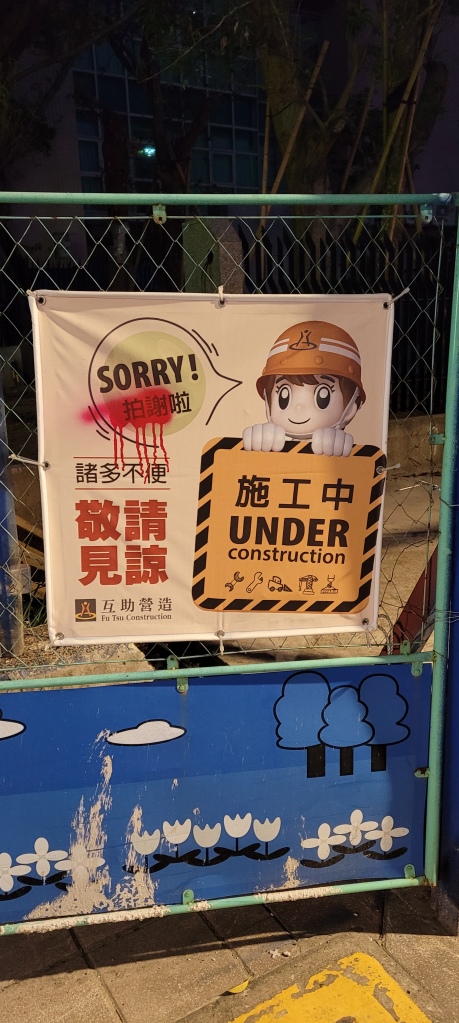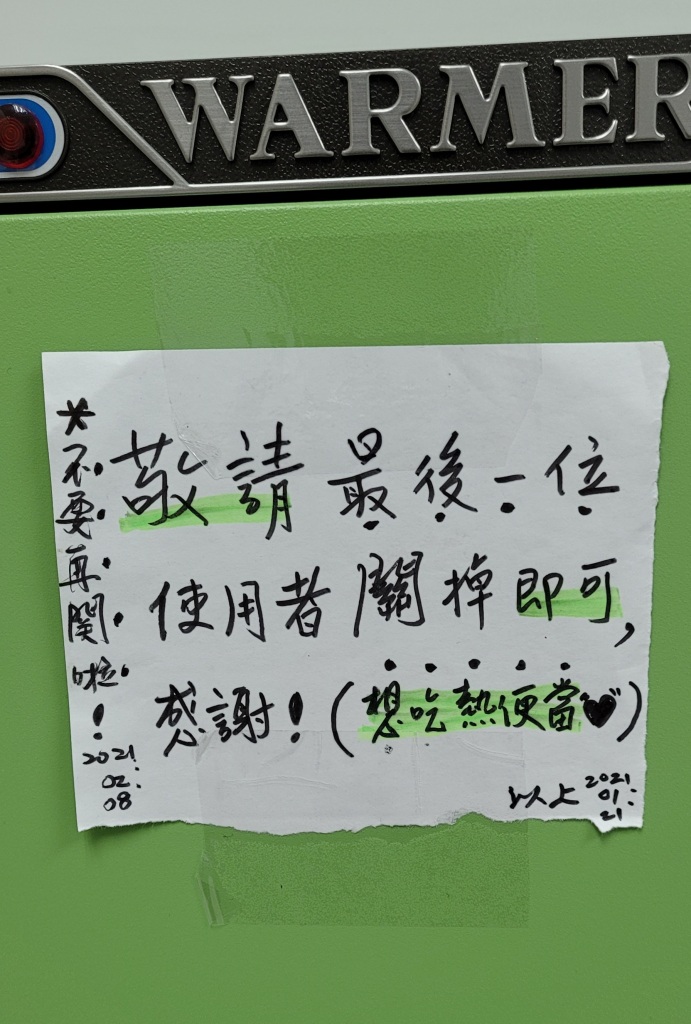I’m not sure quite what was going on with this angry red spoldge of red spray paint on the 「拍謝」 on the construction site sign below:

「拍謝」 is the informal way to write the Taiwanese term 「歹勢」 or “phái-sè”, which is the Taiwanese equivalent of the Mandarin term 「不好意思」 (sorry).
I’m curious about the motivations of the vandalizer. Are they against the use of Taiwanese on a formal sign? Are they against the borrowing of Mandarin sounds to represent Taiwanese, rather than the 「歹勢」 that is used more commonly? Or are they against the use of Chinese characters to represent Taiwanese at all? Or was it just a random stain that got on the sign somehow?
Given the history of its suppression, language tends to be a sensitive issue in Taiwan. Writer Huang Chun-ming (黃春明) even took off his shirt during a lecture back in 2011 due to a disagreement with Associate Professor Wi-vun Chiung (蔣為文) in the audience over the necessity for Taiwanese-language instruction for primary schools and Huang’s unwillingness to adopt Latin script to represent the Taiwanese language (as implied by the sign below).
/cloudfront-ap-northeast-1.images.arcpublishing.com/appledaily/YXJXVSMQWKFHYYZEM4BM2DFTLI.jpg)
/cloudfront-ap-northeast-1.images.arcpublishing.com/appledaily/AXWSCVMYMQD3OTBZM323XO26RA.jpg)
Ironically you’ll see Professor Chiung uses the Simplified version of the character 「國」 in his sign. Linguistic hardliners are not really my cup of tea, and I much prefer the hodge-podge of English, Mandarin and Taiwanese that the construction site sign portrays.







































